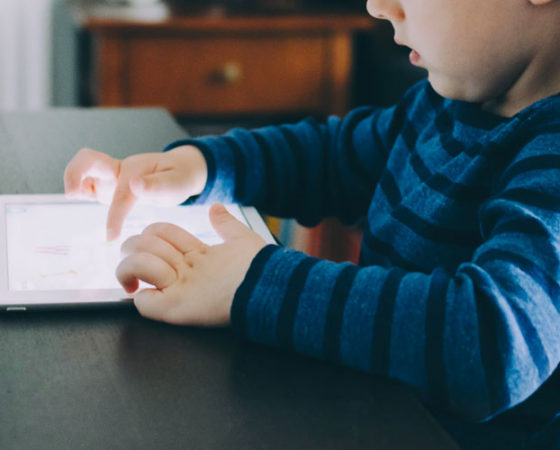Today, Parenting Will By Necessity Involve Decisions About Screens
Today’s parents have a unique problem that their parents didn’t necessarily have to deal with when they were kids: having to compete with screens. Oh sure, there was the TV, but that was about it. 25 years ago, computers were used mostly for doing homework, and video games meant firing up the Nintendo, which really usually only just extended the time in front of the TV by an hour or so.
Now there are PC games, phones and tablets and streaming videos to tempt your kids, and you’ve still got that TV to deal with, only now it’s even bigger. Most parents have a sense that too much screen time could be harmful and as a result, they may try to ban phones at the dinner table or enforce a technology shutdown two hours before bed. They may also set a hard time limit on daily screen time for kids.
There may be distinct benefits to your kids just by pulling them away from their screens and making them go play outside or interact with others in “real life.” But the question is, does all that screen time actually harm your kids?
Screen Time and Eye Health
Are parents right? Can screen time be hazardous to children? Or are these concerns overblown? Studies suggest that they may be on to something. According to the Vision Council, parents have reported that kids enjoying more than two hours of screen time daily exhibit reduced attention span, headaches, eyestrain, dry eyes, or irritability.
Another study shows that 40 percent of young adults in the U.S. suffer from myopia (nearsightedness), up 25 percent from only 40 years ago. This is not necessarily attributable to screens, but it may play a role.
The Blue Light Problem Associated With Today’s Screens
The reason why screens can cause a problem for kids (and for anyone, really), is blue light. Blue light is one of many light spectra emitted by screens, but it is the most problematic.
Because it is a high-energy light, it can be harmful to the retina, a very light-sensitive part of the eye, with enough exposure. In addition, blue light regulates our circadian rhythm.
Blue light only occurs naturally during the day, so the presence or absence of it often tells the brain when it is time for sleep. This is why it is a good idea to limit screen time as bedtime approaches.
Reducing Screen Time for Kids Can Help With Eye Health
The reality is that all of us could probably improve our eye health with a little less screen time. But when it comes to a child’s growing eyes, it may be even more important.
At this point, it’s not exactly clear what a “healthy” amount of screen time is because the long-term effects of excessive screen use in children or adults is still not fully known. However, parents who limit screen time to only a few hours a day, who pay attention to any screen-related eye complaints their children may have, and who cut off screen time well before bedtime, probably have the right idea.
Making Time for Regular Eye Exams
It’s also a wise idea to bring your child in for regular eye exams every year. The sooner a child’s vision is corrected, the more successful they can be in school and the less likely they are to have their vision problems worsen as they grow.
If you are in the Portland area, bring your children and yourself to see our residency-trained Optometric physicians at Beaumont Vision for a comprehensive eye exam. Make an appointment today!

